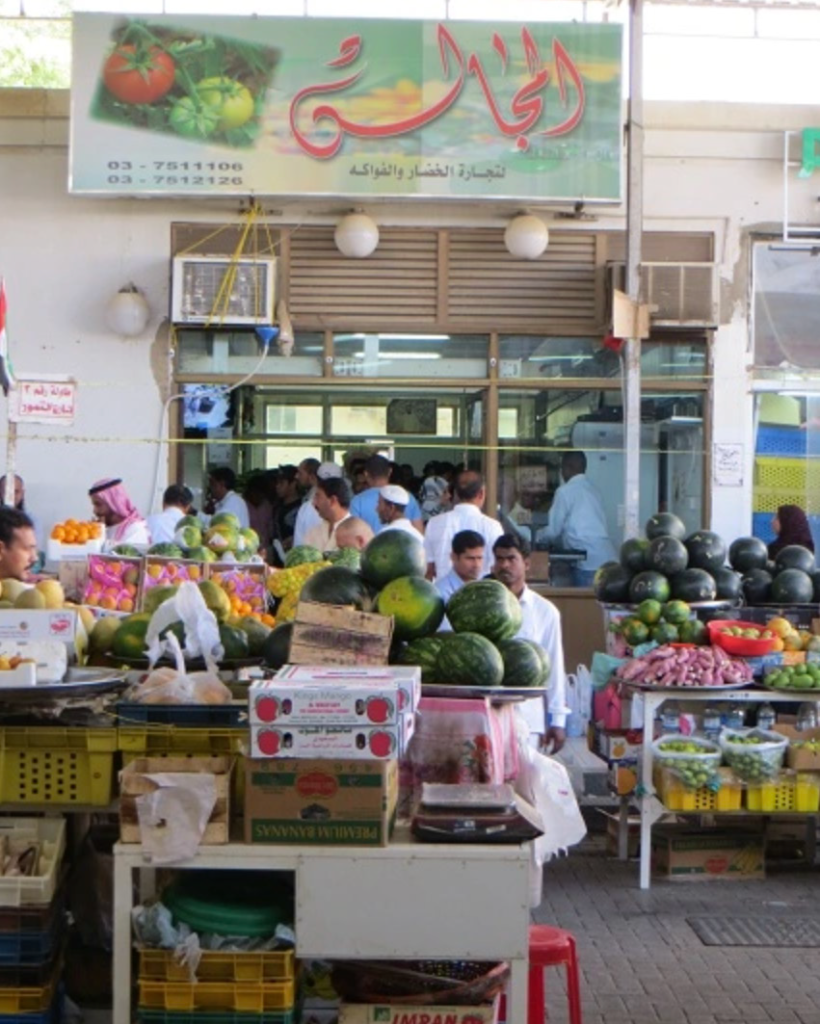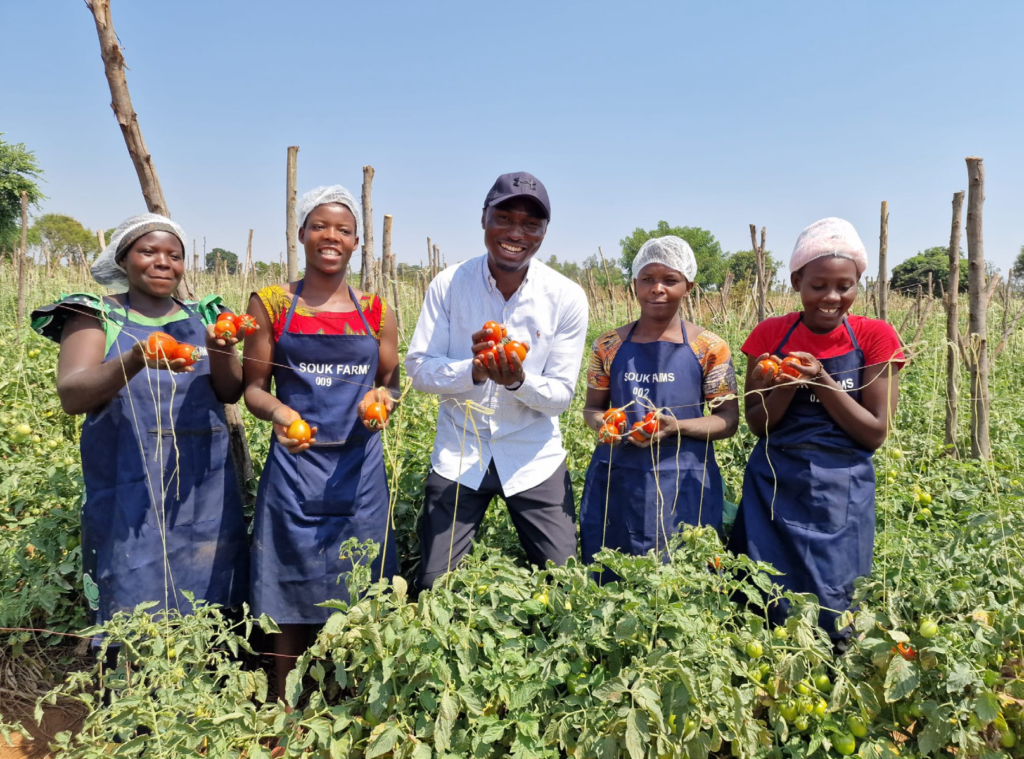Africa is the home of food, and this is very arguable. It would interest you to know that many food items or products consumed in the western countries are from Africa. Some of them get there as finished products, or some go as raw materials which are then processed to the desired finish products.
This article draws attention to some of African food production companies who are making money by exporting their food abroad.
1. Exporting Rwanda’s Avocado And Chilli Pepper
Seun Rasheed is an entrepreneur and founder and CEO of SOUK Farms, his farm basically taking advantage of Rwanda’s cultivation of crops such as avocados, chillis, and beans and exporting them. SOUK Farms started in 2019, however, Rasheed was still fully employed up till 2021. He worked as a lead economist for Shell at one of its liquefied natural gas sites in Qatar. “It (the company) was meant to be set up as a side business, while I kept my own job, but it grew very quickly into something that needed my complete attention,” he explains.
SOUK Farms currently exports its products to Europe and the Middle East, but Rasheed is bullish about delving into the intra-African trade; he believes that this is where the real growth potential lies for his business.
2. Nigerian Foods Turned Into An Agricultural Exports Business
Lanre Awojoodu, is the CEO of Sourcing and Produce, and his company was solely exporting cocoa from Nigeria to Europe. The company later diversified into other commodities such as cashew nuts and ginger, making it a 3 products export company. In 2021, the firm launched its own label, So Pure, and established an online presence with a storefront on Amazon. Its main target were the Nigerian diaspora in the US, So Pure offers an array of products including the ancient grain fonio, fufu flour (derived from starchy vegetables like cassava and yam), ofada rice (a type of unpolished, parboiled rice indigenous to Nigeria) and pepper soup spice. These processed products are sourced and packaged in Nigeria and then exported to the US. However, Sourcing and Produce also has an office in Wyoming in USA to handle the physical order, logistics and deliveries.
3. Another Nigerian Entrepreneur Taking Nigerian Superfoods To The US
Then comes Shalom Bako Dangombe, another Nigerian entrepreneur born in Bauchi State in Nigeria, but eventually grew up in the US. Shalom Bako Dangombe’s father relocated his entire family to Orange County California, when he was 14 years old, and he completed his high school and college there, earning a communication degree. Bako almost chose a career as a professional soccer player, which he was actively involved in while in college, he also played briefly for the Los Angeles Galaxy.
Bako later set up Afrivana in 2019, a marketing and distribution company, which specializes in distributing African superfoods. Bako, who is now in his mid-thirties, frequently engages with smallholder farmers in northern Nigeria to grow hibiscus flowers, which he exports through his company to the US, UK and beyond.
Afrivana processes the hibiscus flowers into dried flowers and sells in bulk or under private labels to his various clients.
4. A Foreign Businessman Sets Up An Empire That Sells West Africa’s Dried Fruit Abroad
Hans Peter Werder an European established HPW in Ghana in 1997, the company deals on exportation of fresh pineapples from Ghana to Europe. Currently, HPW is one of the largest producers of naturally dried mango, pineapple and coconut in Africa, they have processing capacity of over 30,000 tonnes of fruit yearly. They also employ around 1,500 people in Ghana and Côte d’Ivoire.
Hans says, “The biggest problem for buyers in Europe is finding a reliable source of produce. They want to know exactly what they can expect and they want to know problems as soon as they arise. Key account management is a real issue. How many producers in Africa have offices in the markets, where their customers are based? We have another company, HPW AG, with an office in Switzerland, with additional staff covering the United States and Eastern Europe. This means we remain physically very close to our most important customers,”

5. African Chilli Sauce Exported to 15 Countries
Africa’s extensive tracts of arable land, favorable climate, and cost-effective labour is very attractive for exporting opportunities, especially packaged food products to developed nations. Another positive thing about it, is the growing interest of global players in distinctive African foods. Black Mamba, is a chilli sauce producer established in Eswatini (formerly known as Swaziland) in 2010, and they are capitalizing on this growing interest to export African chilli pepper to other countries. Black Mamba as a company has successfully penetrated international markets, and is currently exporting chilli pepper to 15 countries, with the UK, Norway, and Germany being key destinations.
6. Togo’s Pineapples Being Exported As A Valuable Product
Jus Délice is a Togo based company that specializes in producing pure organic pineapple juice, they then supply them in bulk to European clients, who also distribute the pineapples to various juice brands. Gustav Bakoundah, is the co-founder of Jus Délice, though a finance graduate and professional, has been involved in agriculture for the longest time. He established Label d’Or in 2012, which is a company that sources and exports pineapples and other organic crops that are grown by Togolese smallholder farmers.
Eventually, Bakoundah decided to enhance the value of the pineapples locally, rather than exporting them exclusively as raw produce. He researched on other various product possibilities which can be gotten from pineapples, and eventually settled for juice production. However, the long term payment conditions by retailers deterred him from going into consumer retail business, instead he adopted a B2B model. 7. And Finally A Glimpse Into The International Cashew Nut Market
Tanzanian entrepreneur Fahad Awadh established YYTZ Agro- Processing in 2015, the company specializes in the processing and export of cashew nuts. Though it was very challenging initially, because of non interest by bank managers in funding the business. Awadh and his father, chose to invest in refurbishing a production facility in Zanzibar. They also started research expeditions to Vietnam, and there, they gained insights into efficient manufacturing techniques and subsequently prioritized mechanization of their operations.
In 2016, YYTZ received a significant boost with a $500,000 grant from the Africa Enterprise Challenge Fund, this boosted the company’s production capabilities. Today, YYTZ markets its ‘More than Cashews’ brand, through online platforms and in supermarkets across East Africa, Europe, and North America. Their niche is in their seasoning and processing of their cashews with local ingredients, including Zanzibar sea salt.

8. Fonio: West Africa’s Under-Exploited Supergrain Goes Global
Fonio, is a gluten-free grain that has amazing nutritional benefits, and it has been growing inWest Africa for thousands of years. Fonio grows successfully without fertilizers, and is also not affected by drought, it also contributes to the restoration of organic matter in fallow soil. Fonio, however is being under utilized in West Africa, inspite of its long existence.
Sustainable African Foods, is a joint venture between businessman Simballa Sylla, former CEO of the Mali-based Shea Butter company Mali Shi, and the US-based African foods company Yolélé, co-founded by chef Pierre Thiam and Philip Teverow. They all through their joint company Sustainable African Foods, intend to take advantage of both the regional and international demand for fonio. The company is setting up the world’s first industrial-scale fonio processing plant in Mali, to produce processed fonio grains and flour.
9. Exporting Ugandan Coffee To Europe
Hendrik Reimers, is the CEO of Fairafric, and he visited a coffee plantation while travelling across Uganda, on a sabbatical in 2013. he was invited to sample the coffee, and interestingly, the plantation only exported raw coffee beans. Reimers was surprised to discover that the growers didn’t process and package the coffee, as he knew they would sell it at a better price.
So he decided to fill that gap and returned to Germany, where he was a salesman. He developed a plan to produce value-added agricultural products in Africa, and settled for chocolate produced from cocoa beans. He eventually launched his chocolate company in 2016, through a crowdfunding platform and began operations in Ghana in the same year.

